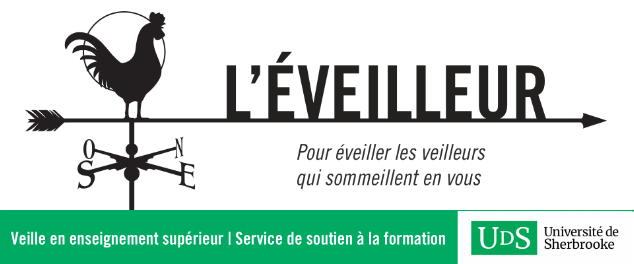Dans un discours prononcé au Lowy Institute Media Award en Australie, le chroniqueur Stephens Bret du New York Times évoque avec inquiétude et discernement (non sans quelques délicieuses pointes d’humour) la question de la liberté d’expression vacillante sur les campus universitaires américains. D’abord, il rappelle à quel point les Américains multiplient les désaccords sur toutes les plateformes… La tendance aux fausses nouvelles et aux faits “alternatifs” le préoccupe évidemment.
« We disagree about racial issues, bathroom policies, health care laws, and, of course, the 45th president. We express our disagreements in radio and cable TV rants in ways that are increasingly virulent; street and campus protests that are increasingly violent; and personal conversations that are increasingly embittering.
[…]
Finally the polarization is electronic and digital, as Americans increasingly inhabit the filter bubbles of news and social media that correspond to their ideological affinities. We no longer just have our own opinions. We also have our separate “facts,” often the result of what different media outlets consider newsworthy. In the last election, fully 40 percent of Trump voters named Fox News as their chief source of news. » (Stephens, 2017)
Rappelant les nombreux cas de conférenciers dont on a limité la prise de parole dans diverses universités aux États-Unis, il donne quelques chiffres qui font frémir…
« According to a new survey from the Brookings Institution, a plurality of college students today — fully 44 percent — do not believe the First Amendment to the U.S. Constitution protects so-called “hate speech,” when of course it absolutely does. More shockingly, a narrow majority of students — 51 percent — think it is “acceptable” for a student group to shout down a speaker with whom they disagree. An astonishing 20 percent also agree that it’s acceptable to use violence to prevent a speaker from speaking. » (Stephens, 2017)
Lorsqu’il cherche les causes de cette frilosité, il en vient à dénoncer les politiques identitaires de repli et les dérives du concept d’espace sécuritaire (safe space):
« In recent years, identity politics have become the moated castles from which we safeguard our feelings from hurt and our opinions from challenge. It is our “safe space.” But it is a safe space of a uniquely pernicious kind — a safe space from thought, rather than a safe space for thought, to borrow a line I recently heard from Salman Rushdie.
Another consequence of identity politics is that it has made the distance between making an argument and causing offense terrifyingly short. Any argument that can be cast as insensitive or offensive to a given group of people isn’t treated as being merely wrong. Instead it is seen as immoral, and therefore unworthy of discussion or rebuttal.
The result is that the disagreements we need to have — and to have vigorously — are banished from the public square before they’re settled. People who might otherwise join a conversation to see where it might lead them choose instead to shrink from it, lest they say the “wrong” thing and be accused of some kind of political -ism or -phobia. For fear of causing offense, they forego the opportunity to be persuaded. » (Stephens, 2017)
Pour lui, il est démocratiquement essentiel de réhabiliter l’exercice du désaccord intellectuel productif et respectueux, tel qu’il l’a lui même appris à l’université… à une autre époque:
« To listen and understand; to question and disagree; to treat no proposition as sacred and no objection as impious; to be willing to entertain unpopular ideas and cultivate the habits of an open mind — this is what I was encouraged to do by my teachers at the University of Chicago.
It’s what used to be called a liberal education.
The University of Chicago showed us something else: that every great idea is really just a spectacular disagreement with some other great idea.
[…] Most importantly, they are never based on a misunderstanding. On the contrary, the disagreements arise from perfect comprehension; from having chewed over the ideas of your intellectual opponent so thoroughly that you can properly spit them out.
In other words, to disagree well you must first understand well. You have to read deeply, listen carefully, watch closely. You need to grant your adversary moral respect; give him the intellectual benefit of doubt; have sympathy for his motives and participate empathically with his line of reasoning. And you need to allow for the possibility that you might yet be persuaded of what he has to say.» (Stephens, 2017)
Selon lui, on est en train de former une génération qui ne comprend pas l’intérêt des débats d’idées pour la santé d’une démocratie:
« So here’s where we stand: Intelligent disagreement is the lifeblood of any thriving society. Yet we in the United States are raising a younger generation who have never been taught either the how or the why of disagreement, and who seem to think that free speech is a one-way right: Namely, their right to disinvite, shout down or abuse anyone they dislike, lest they run the risk of listening to that person — or even allowing someone else to listen. The results are evident in the parlous state of our universities, and the frayed edges of our democracies.
Can we do better? » (Stephens, 2017)
Nous en avions déjà parlé en début d’année 2017, cette situation est également présente au Québec. Donnons-nous l’occasion à nos étudiants de s’enrichir intellectuellement grâce aux désaccords?
Source: Stephens, Bret, “The Dying Art of Disagreement“, The New York Times, 24 septembre 2017






